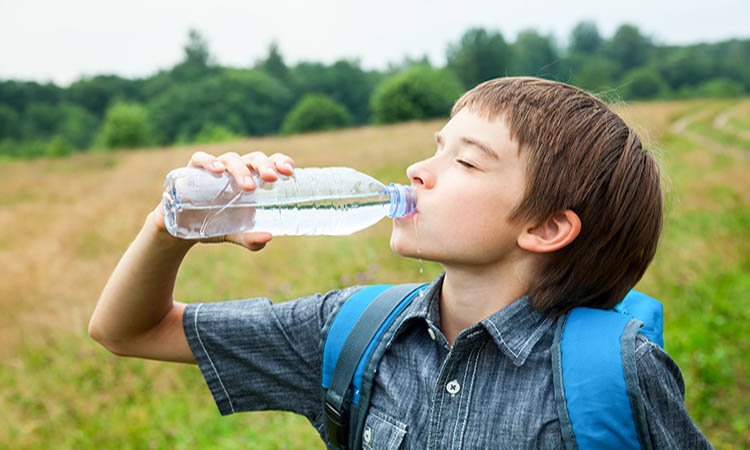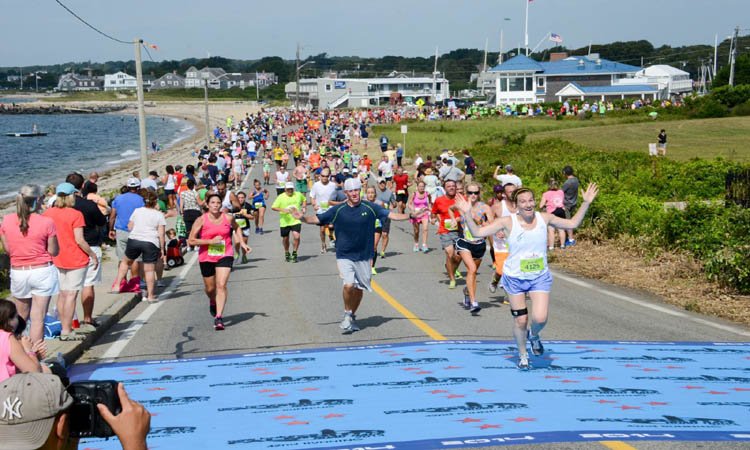It’s summertime – those lazy, hazy, crazy days of heat in the high 80s, 90s, and 100s, with breathtaking humidity. But are you hydrated enough?
According to the Mayo Clinic, dehydration occurs when your body uses or loses more fluid than you're actually taking in. Your body needs water (and other fluids) to work properly and carry out normal functions.
If severely dehydrated, you could be headed for a world of trouble, including the life-threatening sickness known as heat stroke, urinary and kidney problems, seizures, and hypovolemic shock.

It's important that infants and young children stay hydrated, especially during the summer months. (Photo courtesy of wonderopolis.com)
In order to avoid passing out or dying from a heat-related illness, heed the following health warnings that could possibly save your life. The warning signs and symptoms of dehydration are different for children than they are for adults, so we've organized them that way here.
Infant or Young Child
Especially during the summer months, when out in the sun, it is important to give your infant and child plenty of healthy fluids – especially fresh, clean water. Use an umbrella or large sun hat to shield your child from the damaging, drying and dehydrating rays of the sun.
If you have an infant or young child who is not talking yet, parents need to beware of the following signs that indicate dehydration.
- Dry mouth and tongue
- No tears when crying – If your baby is crying and not pretending, you should see tears.
- No wet diapers for three hours
- Sunken eyes, cheeks
- Sunken soft spot on top of skull
- Listlessness or irritability – Sometimes an irritable baby will be soothed with milk or water.

If we want to make it to the finish line in life, stay hydrated during the summer months. (Photo courtesy of falmouthroadrace.com)
Adult
We often will not realize that we are dehydrated until symptoms occur. Teenagers and adults are often involved in outdoor sports and activities during the summer and often ignore the following warning signs of dehydration.
- Extreme thirst – Don’t ignore. This is your first sign that you need to drink more water.
- Less frequent urination – Avoiding fluids for long periods of time will greatly minimize your trips to the bathroom, but damage your kidneys.
- Dark-colored urine – Check your urine. Urine should not be dark yellow or orange, but light in color, like lemonade.
- Fatigue – Many people ignore this symptom thinking it is because they just have not had enough sleep, but it can also indicate dehydration.
- Dizziness – Many people, particularly the elderly, have become dizzy and fainted because they have not drunk enough fluids.
- Confusion – If you’re not thinking clearly, you may need to drink a glass of water and relax.
Some of the causes of dehydration are not all weather-related and may be due to other health issues, like undiagnosed diabetes or various medication side effects.
The best way to avoid dehydration during the summer months is to drink plenty of fluids and eat foods that have a high-water content, such as watermelon, cucumbers, peaches, oranges, and pineapples.
If you have diarrhea for more than 24 hours, are confused and disoriented, have bloody or black stools, have constant vomiting, and can’t keep liquids down, see a doctor immediately.
Do you have any tried-and-true methods for staying hydrated in the summer? Tell us in the comments!
